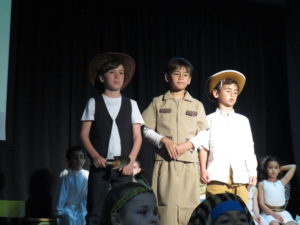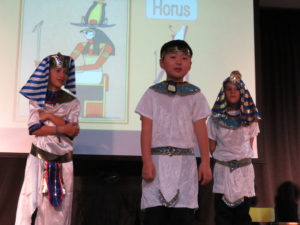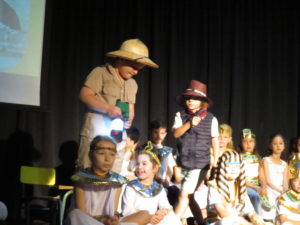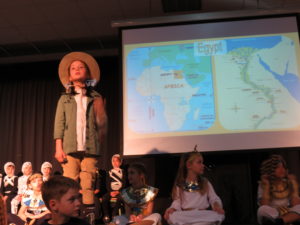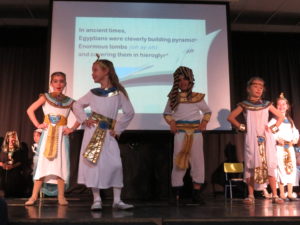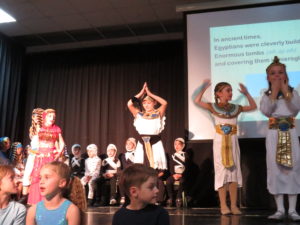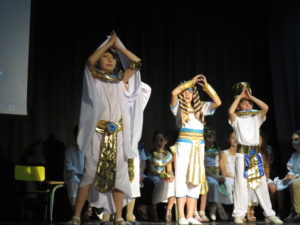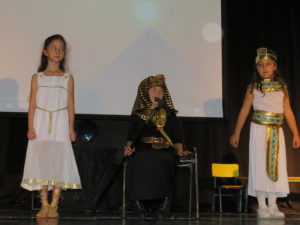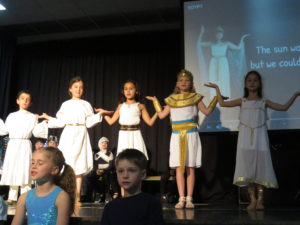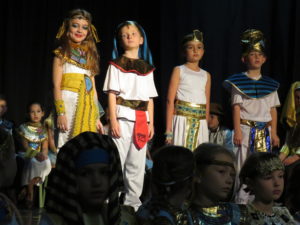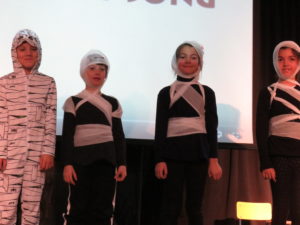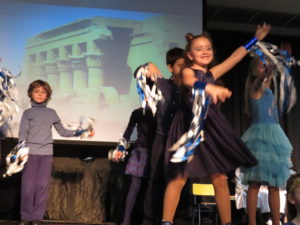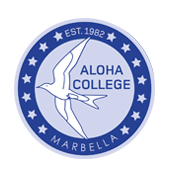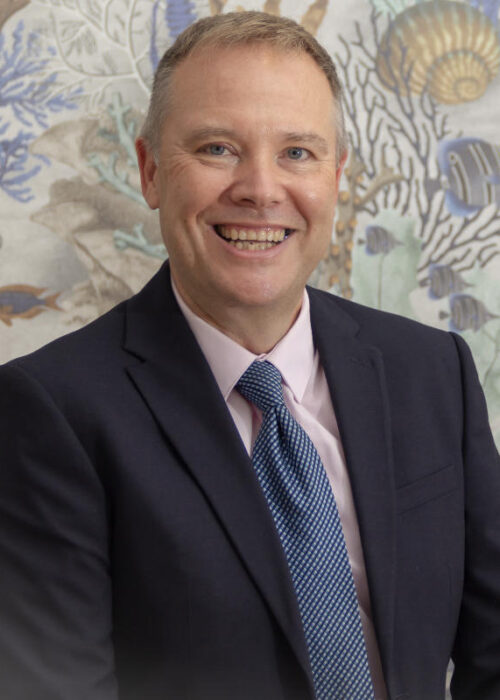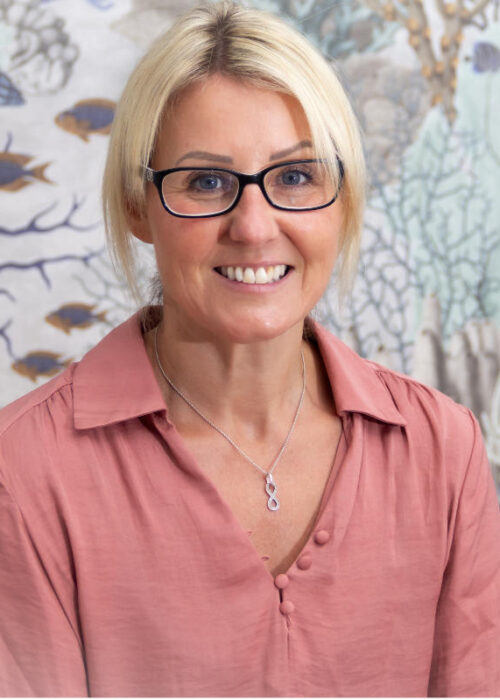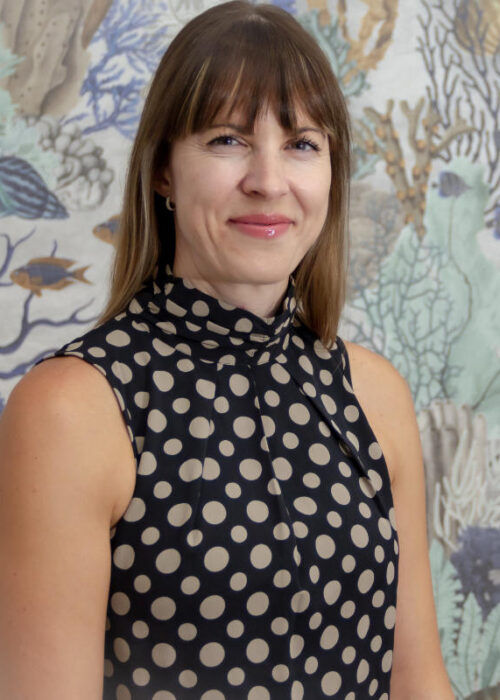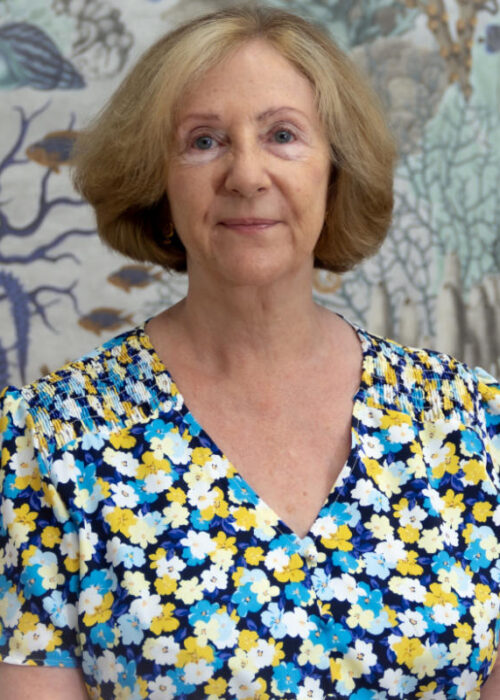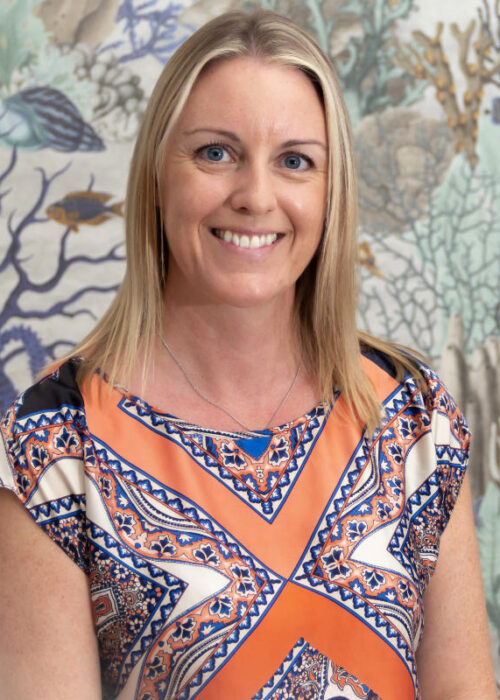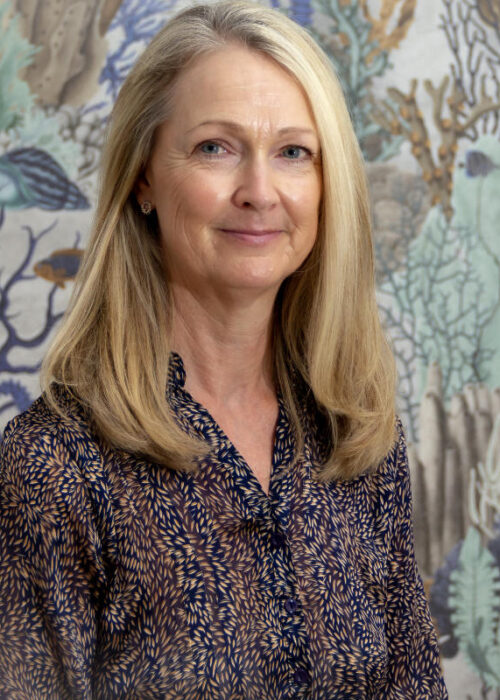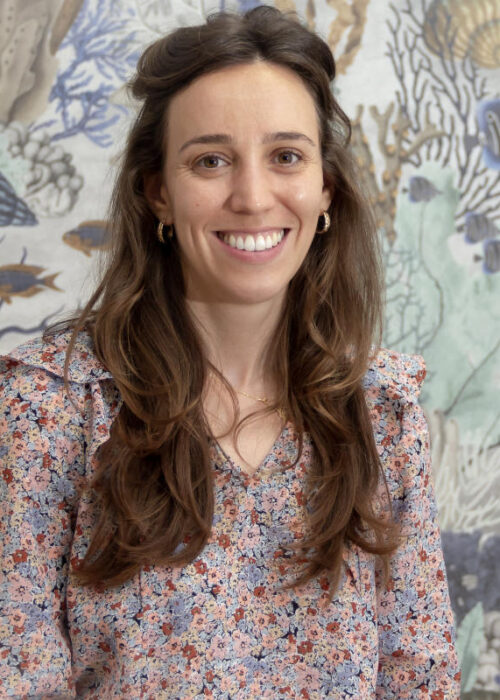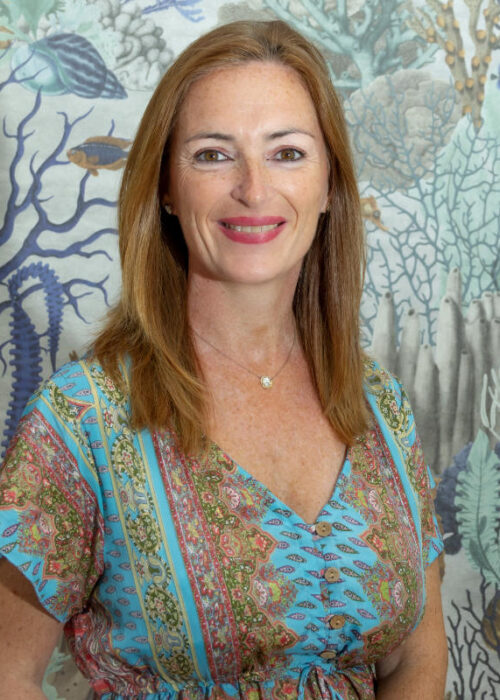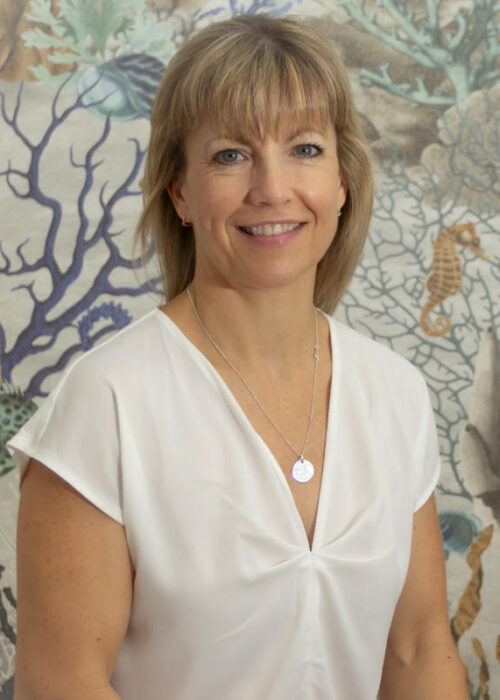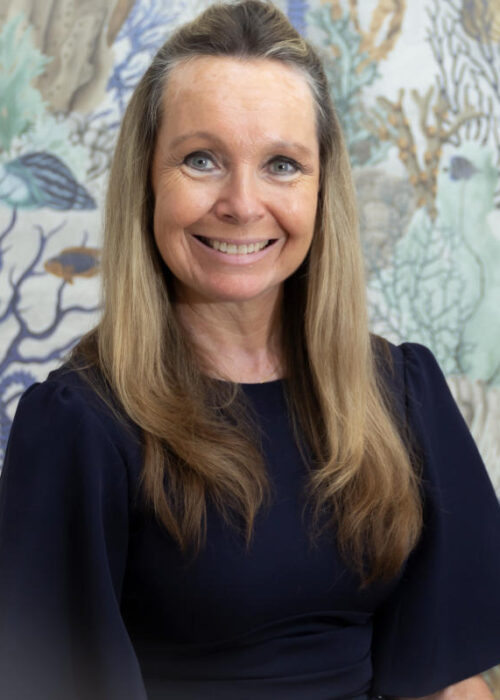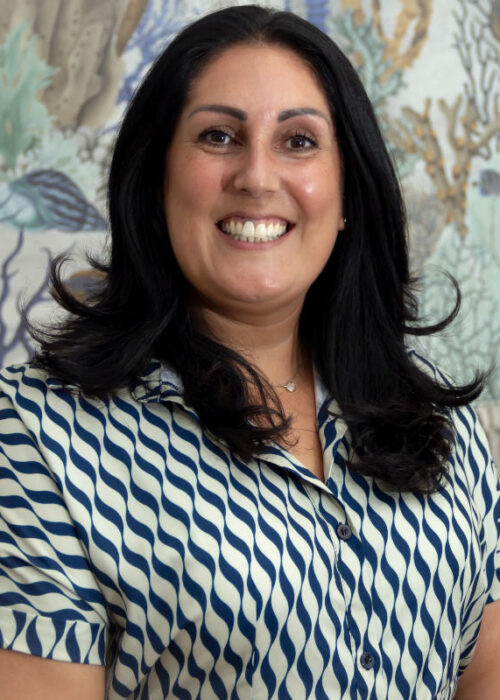“Amazing Egyptians, Exciting Egyptians …” was definitely the order of the day when Year 3 presented their IPC work on this ancient civilisation. We saw a group of Egyptologists open the assembly to the tune of Indiana Jones as they made their way back in time to teach us many of the historical facts they had learned. We were introduced to Cleopatra and Tutankhamun; a few scary mummies came back to haunt us and the Egyptian gods Anubis, Horus and Ra also made their entrance onto the stage. The dancing too, was delightful as we saw one group represent the Nile river, another the slaves begging the Pharaoh to release them from their hard labour and “Walk like Egyptian” had us all wanting to join in. A most enjoyable learning experience for all.
